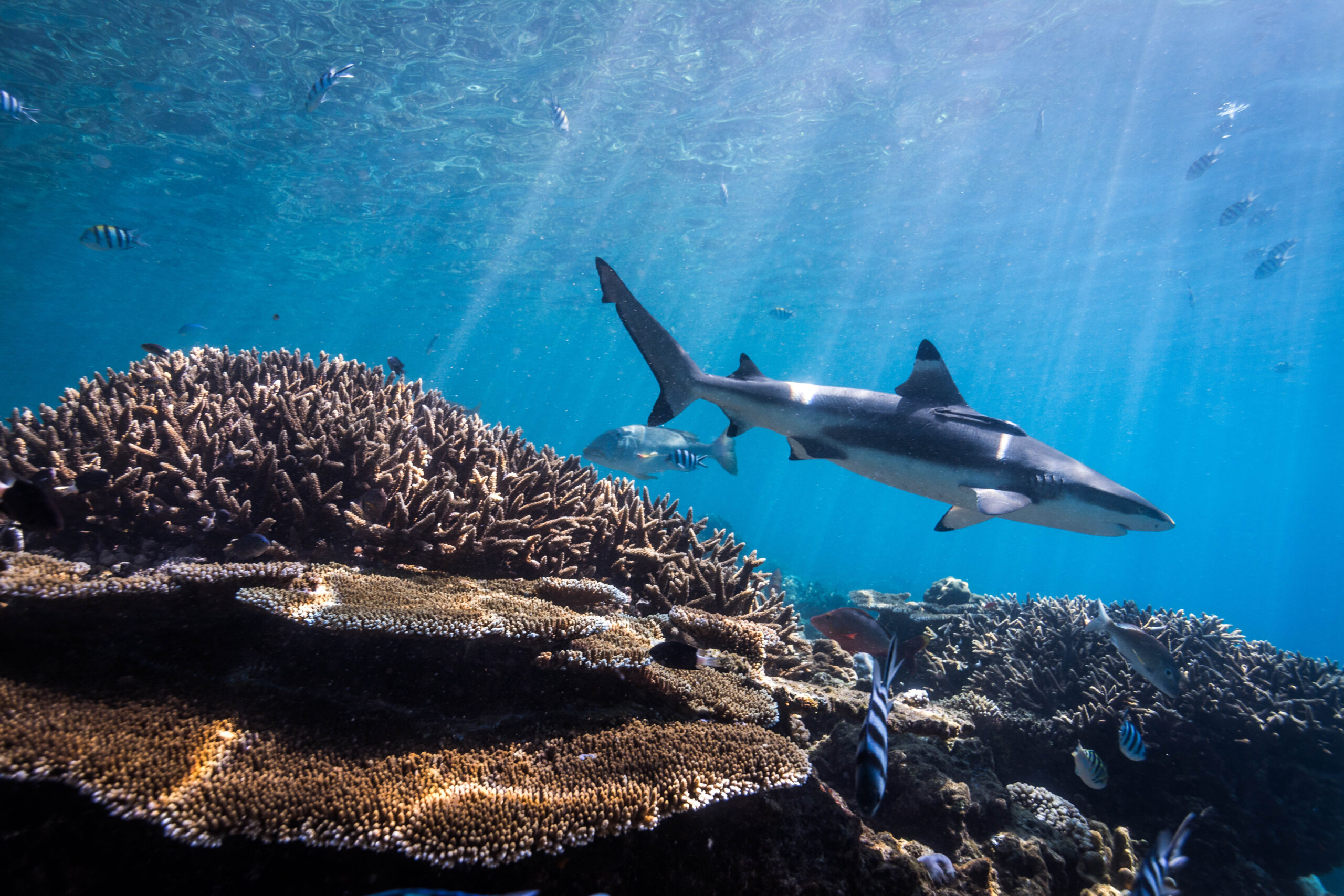In recent decades, marine heatwaves have caused widespread coral mortality, altering the structure of reef communities that people rely on for critical ecosystem services. Though some studies conclude that reducing carbon emissions is the only viable option to save coral reefs, this study demonstrates that implementing management strategies to reduce local stressors is an important strategy for supporting corals’ resilience to climate change.
Using data from 223 coral reef sites across the globe, this study examined how different environmental and biological factors of coral reefs interacted with heat stress to change coral cover. While the study generally found that higher heat stress led to higher coral mortality, it also identified local conditions that were important for the trajectory of coral mortality after bleaching events. The two strongest local predictors of coral cover loss were higher initial macroalgal abundance and higher sea urchin abundance. For instance, reefs with low macroalgae of less than 5% cover suffered minimal coral mortality, even after 12 consecutive degree heating weeks. Macroalgae can lead to coral loss through several direct mechanisms (e.g., exuding dissolved organic carbon leading to coral bleaching, increasing hypoxia on corals, exposing corals to disease). In addition, environmental conditions that increase macroalgae cover on reefs can also be harmful to corals, including increased nutrients from runoff or reduced herbivory from overfishing. Interestingly, the study also found higher urchin abundance was associated with higher coral mortality after heatwaves, which was driven by the existence of overabundant or outbreak-level urchin populations. For instance, reefs with modest urchin densities (<18 per 100 m2) had positive coral cover trajectories after bleaching, while reefs with very high urchin densities (1000 per 100 m2) had negative trajectories for coral cover. Exceptionally high urchin densities can lead to direct predation and bioerosion of the reef matrix. The study also found a modest negative effect of wave exposure on reefs following bleaching, except for the most extreme bleaching events. It found that turbidity led to greater coral loss except when combined with heat stress where turbidity may have helped corals suffer less bleaching.
This study suggests that local management actions can be taken to increase coral reef resilience to bleaching events. In particular, actions that naturally reduce levels of macroalgae (e.g., reducing land-based runoff, reducing overfishing of herbivores) and prevent extreme urchin densities on reefs (e.g., reducing fishing of urchin predators) could help reefs resist and recover from heatwaves more effectively.
Authors: Donovan, M. K., D.E. Burkepile, C. Kratochwill, T. Shlesinger, S. Sully, T.A. Oliver, G. Hodgson, J. Freiwald, R. & van Woesik.
Year: 2021
Email for the full article: resilience@tnc.org
Science 372: 977-980. DOI: 10.1126/science.abd9464


